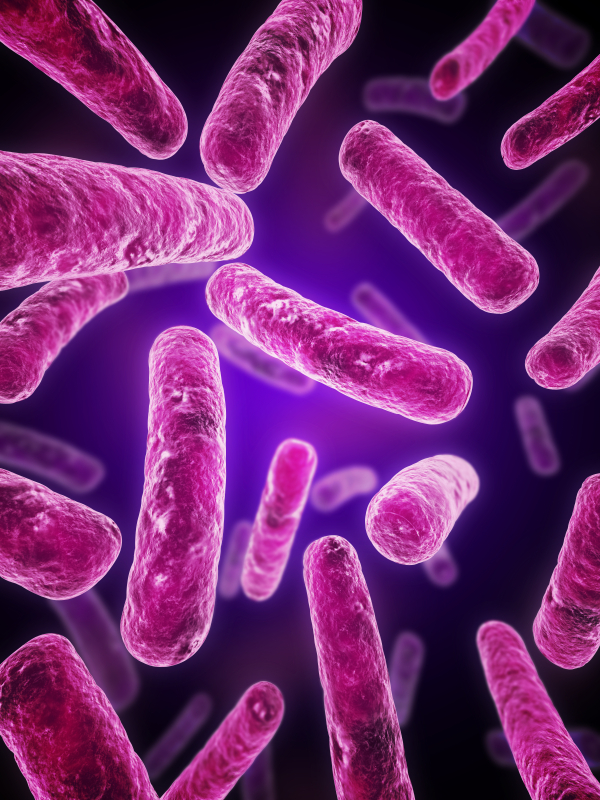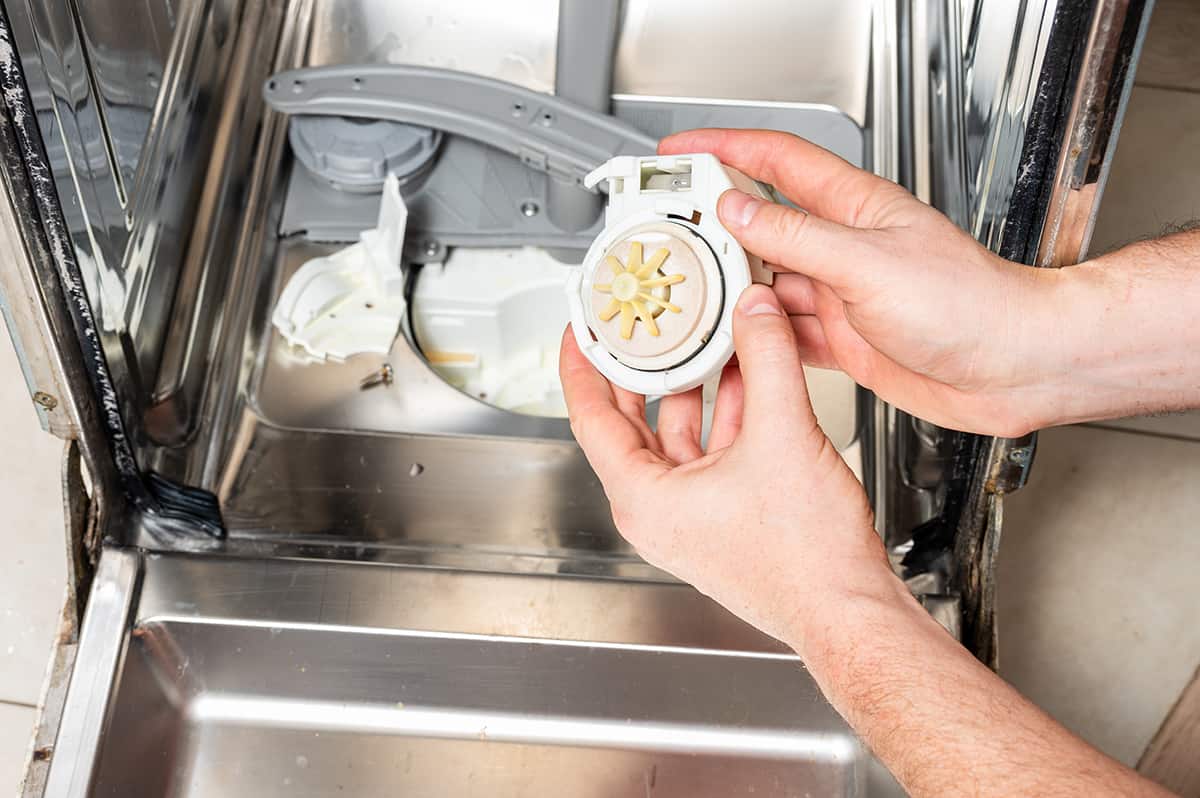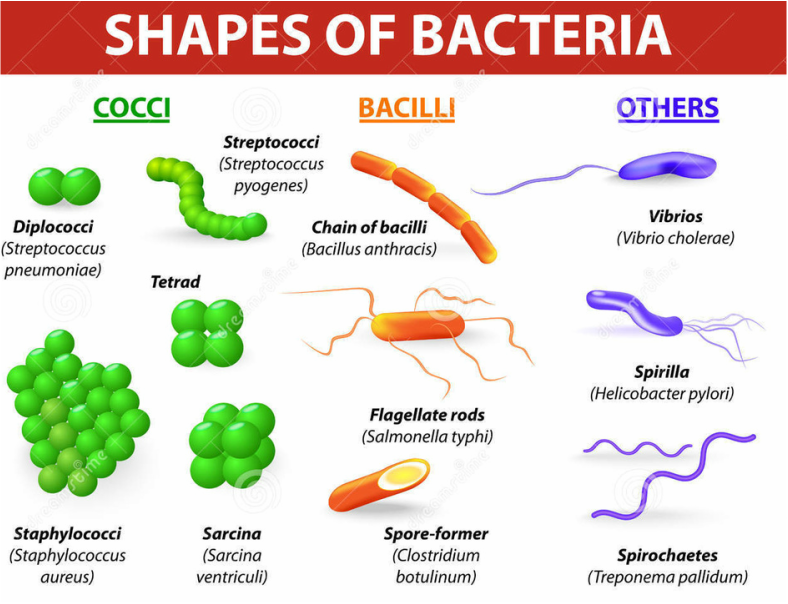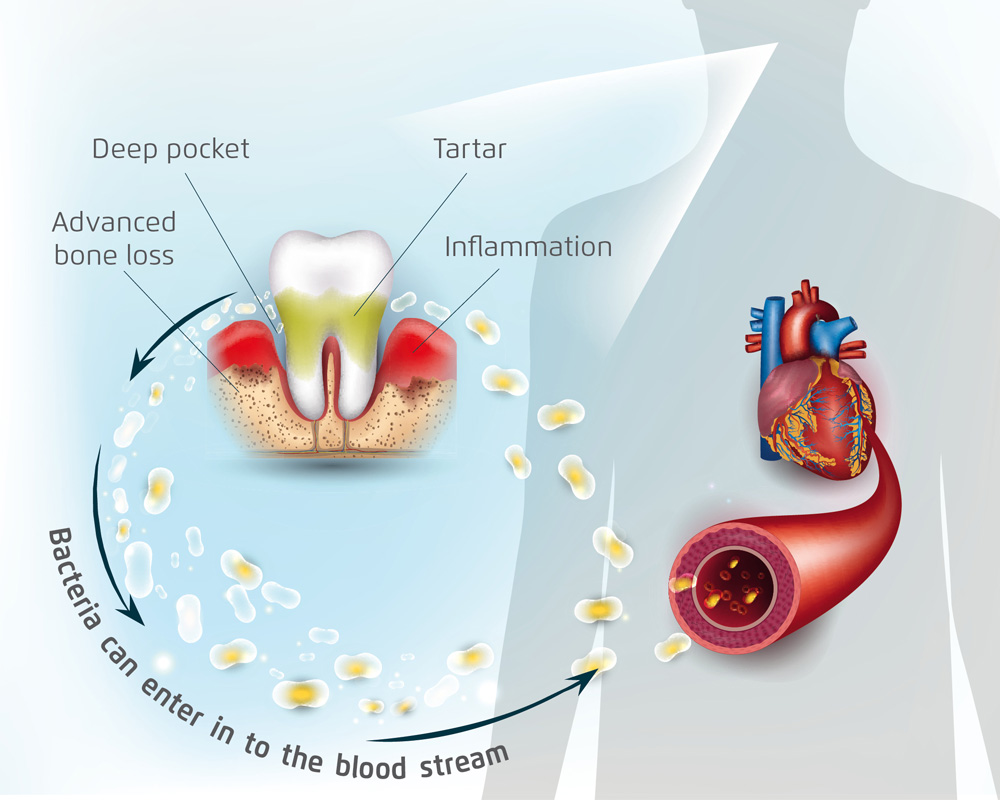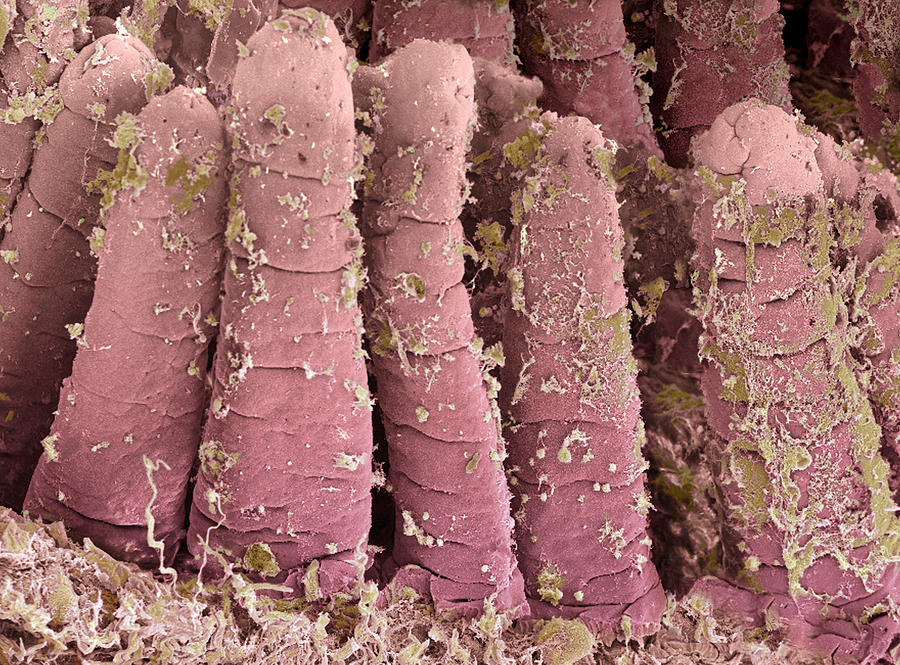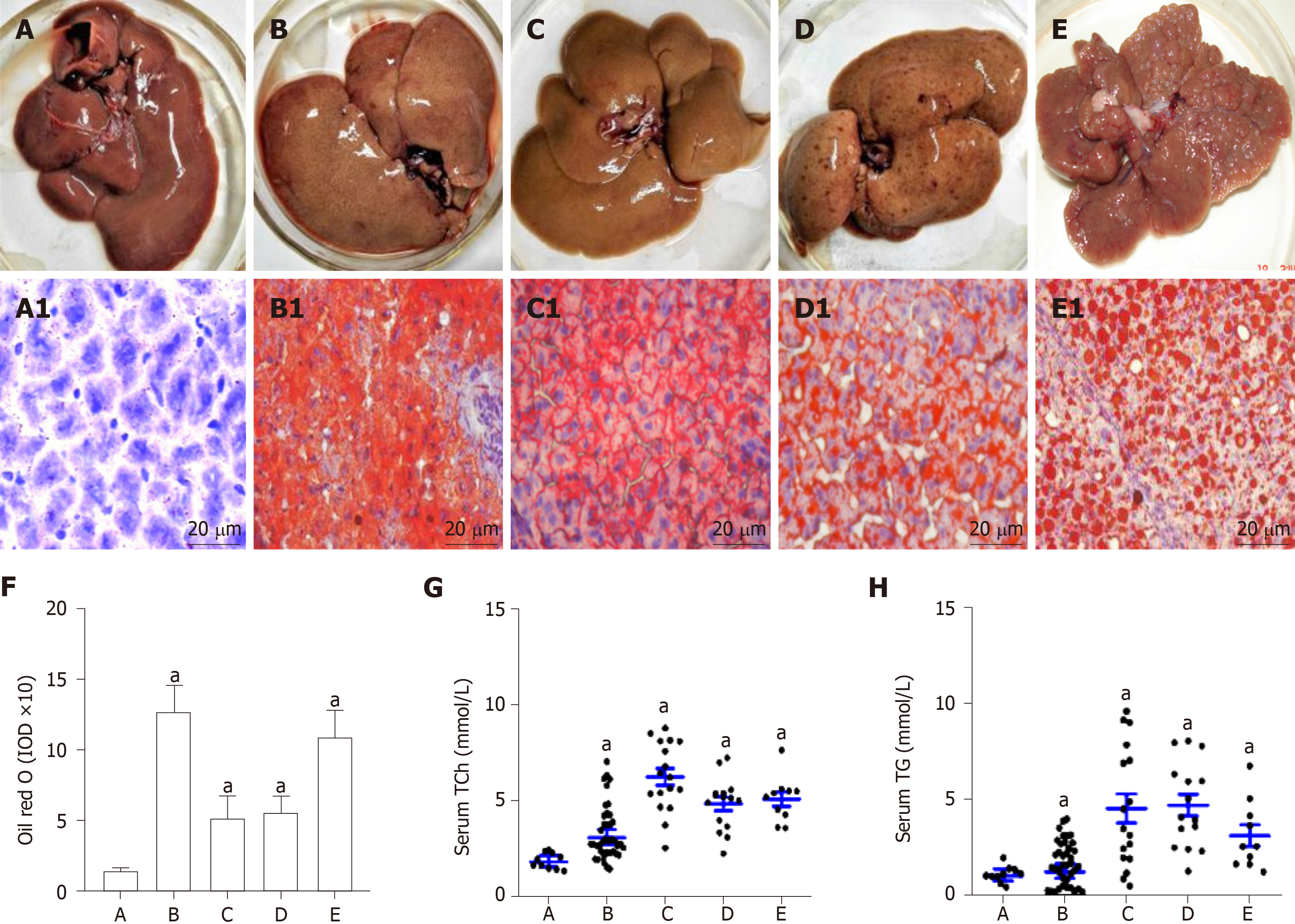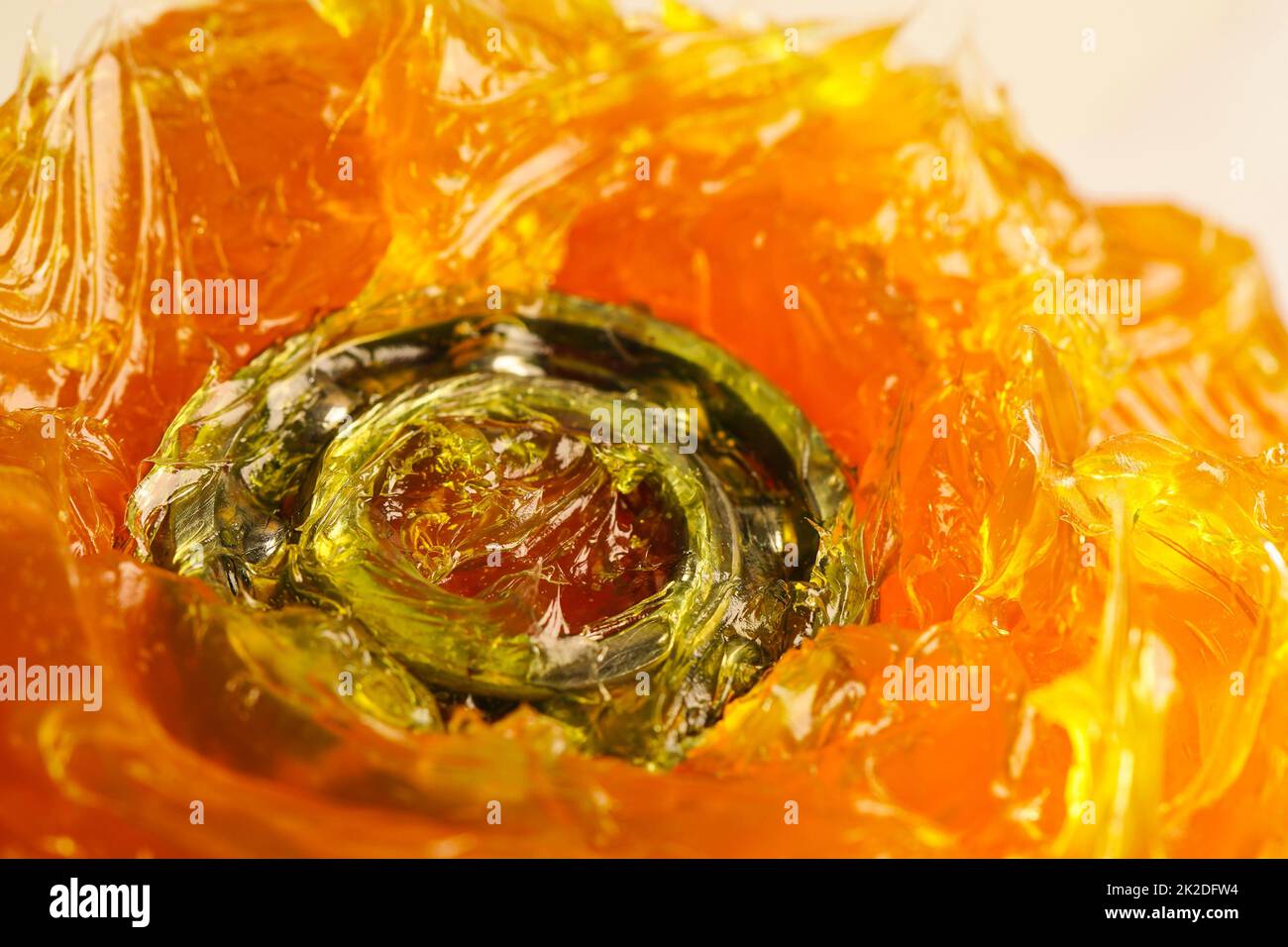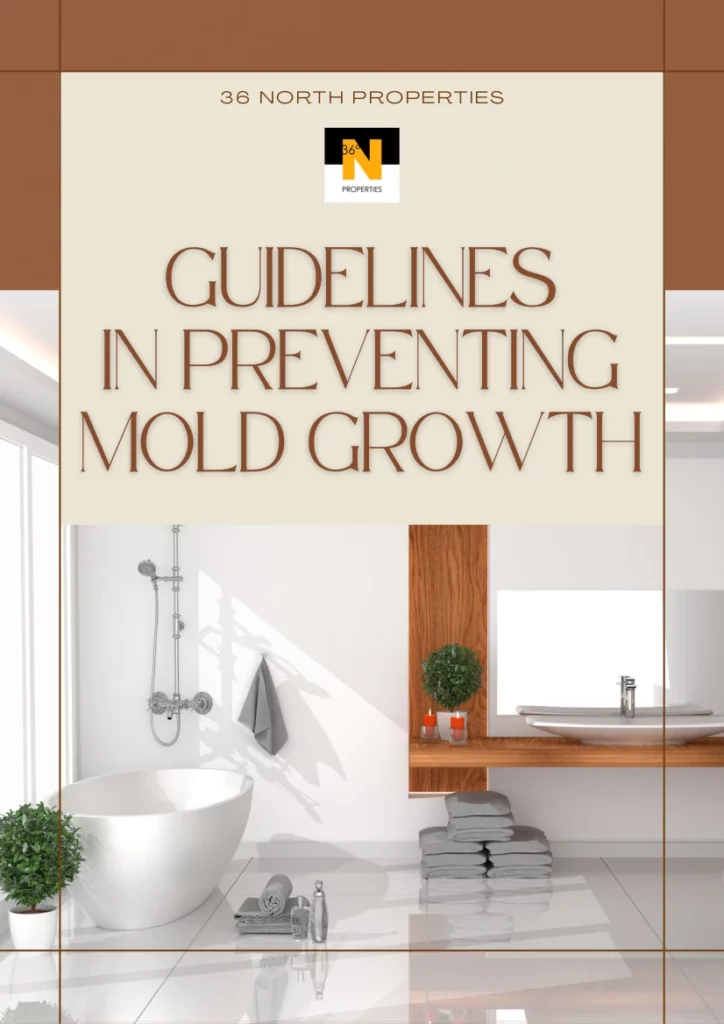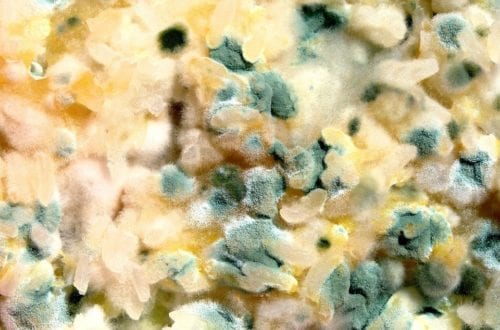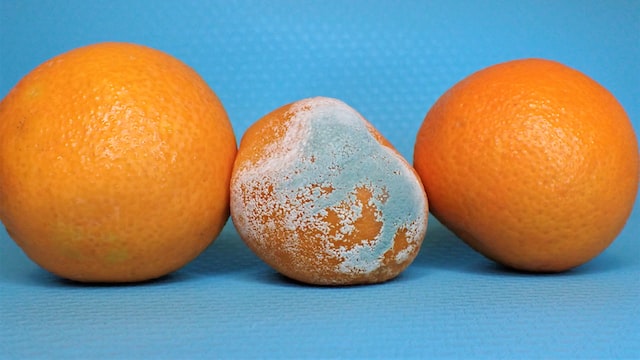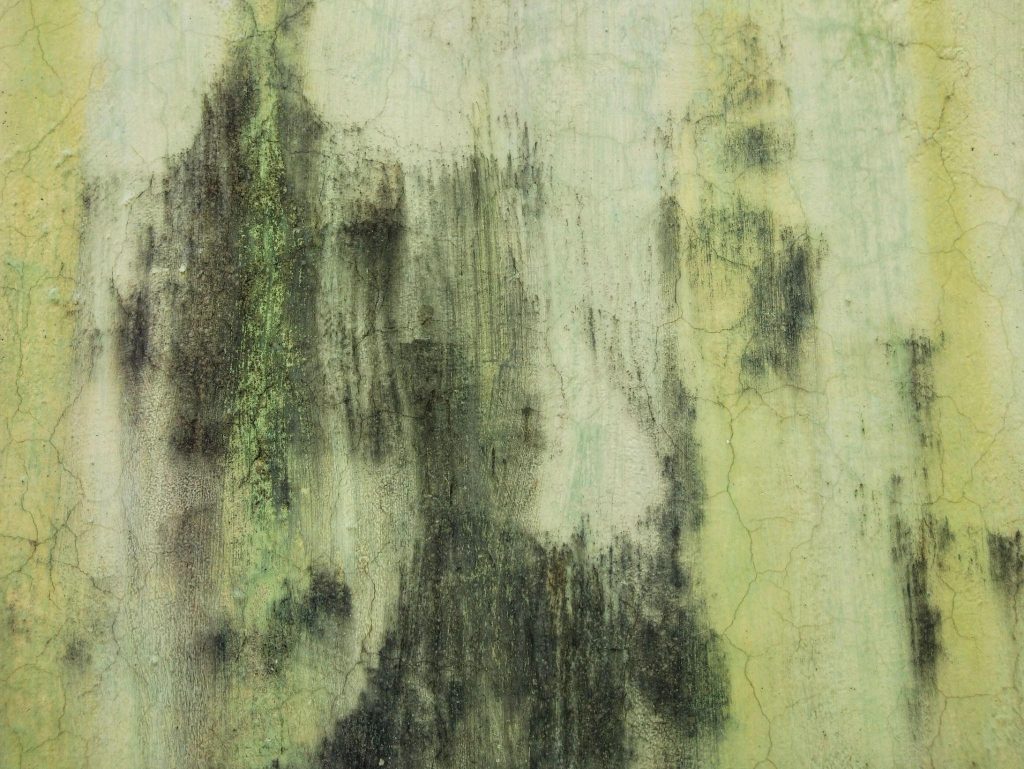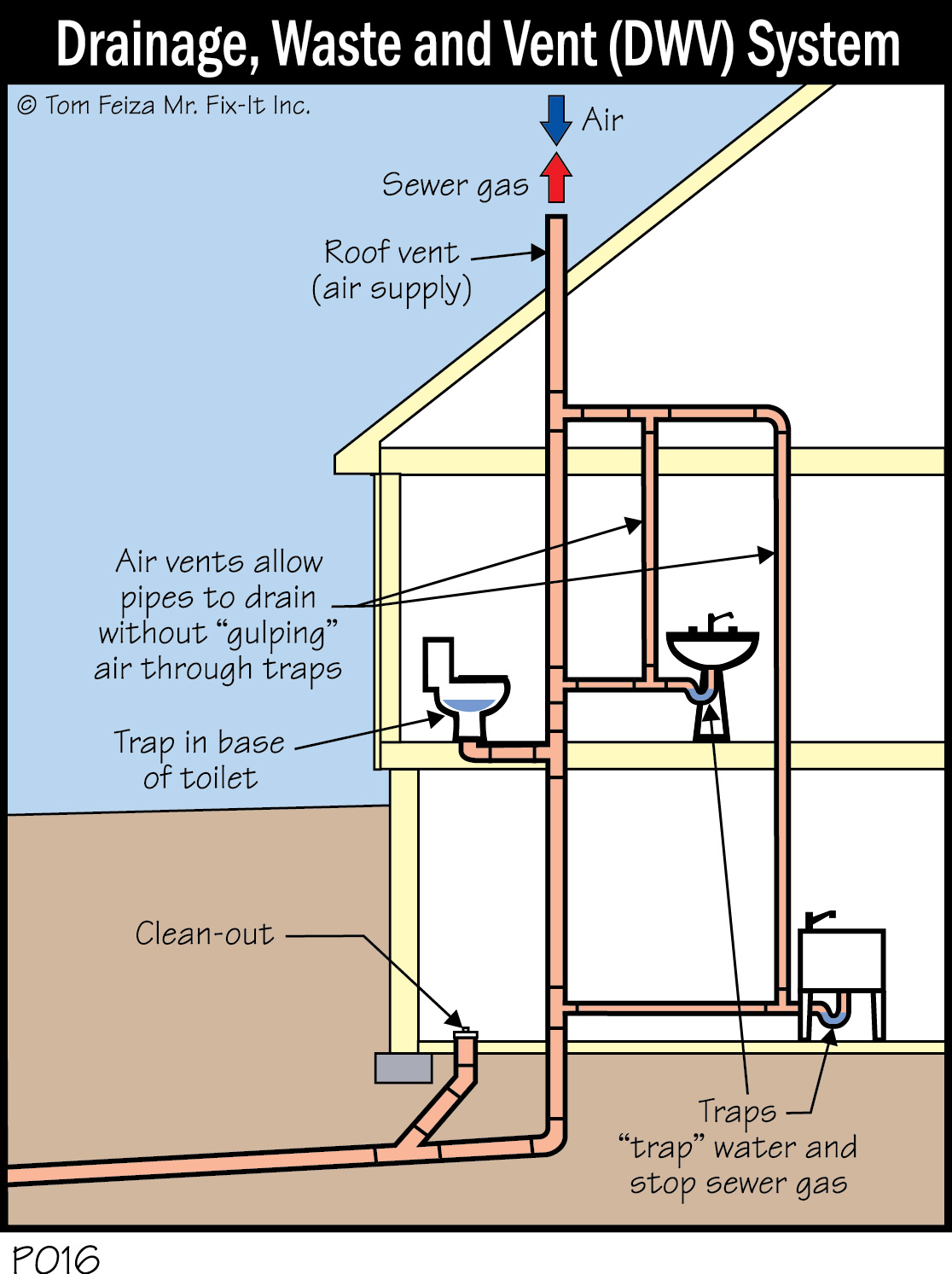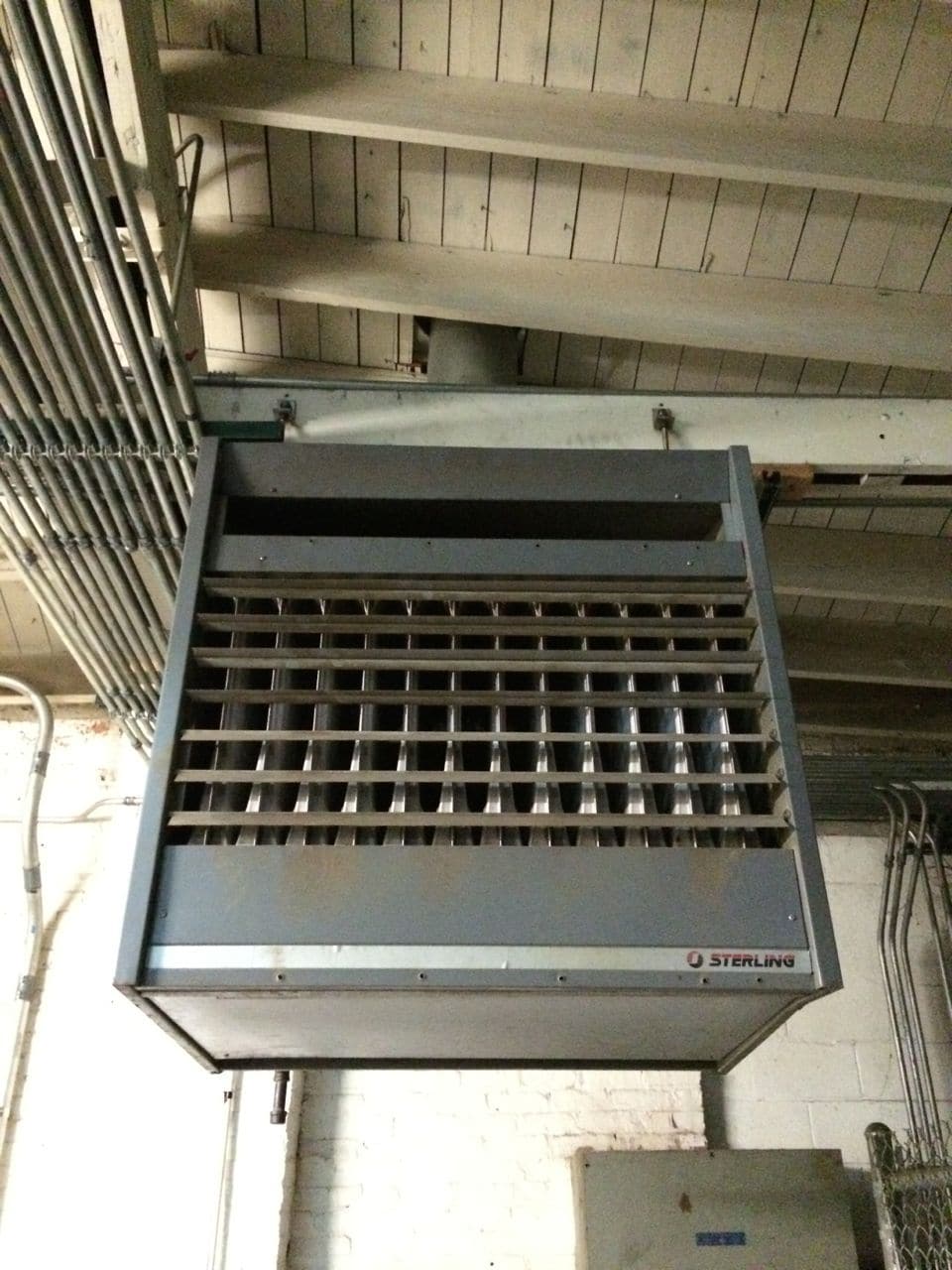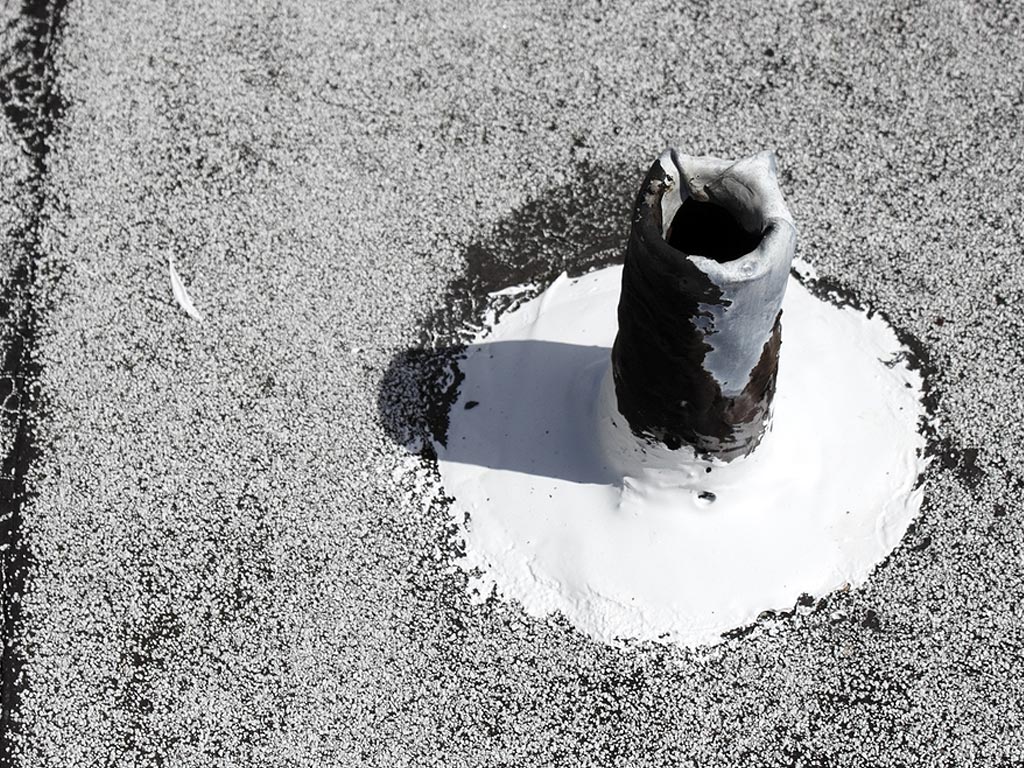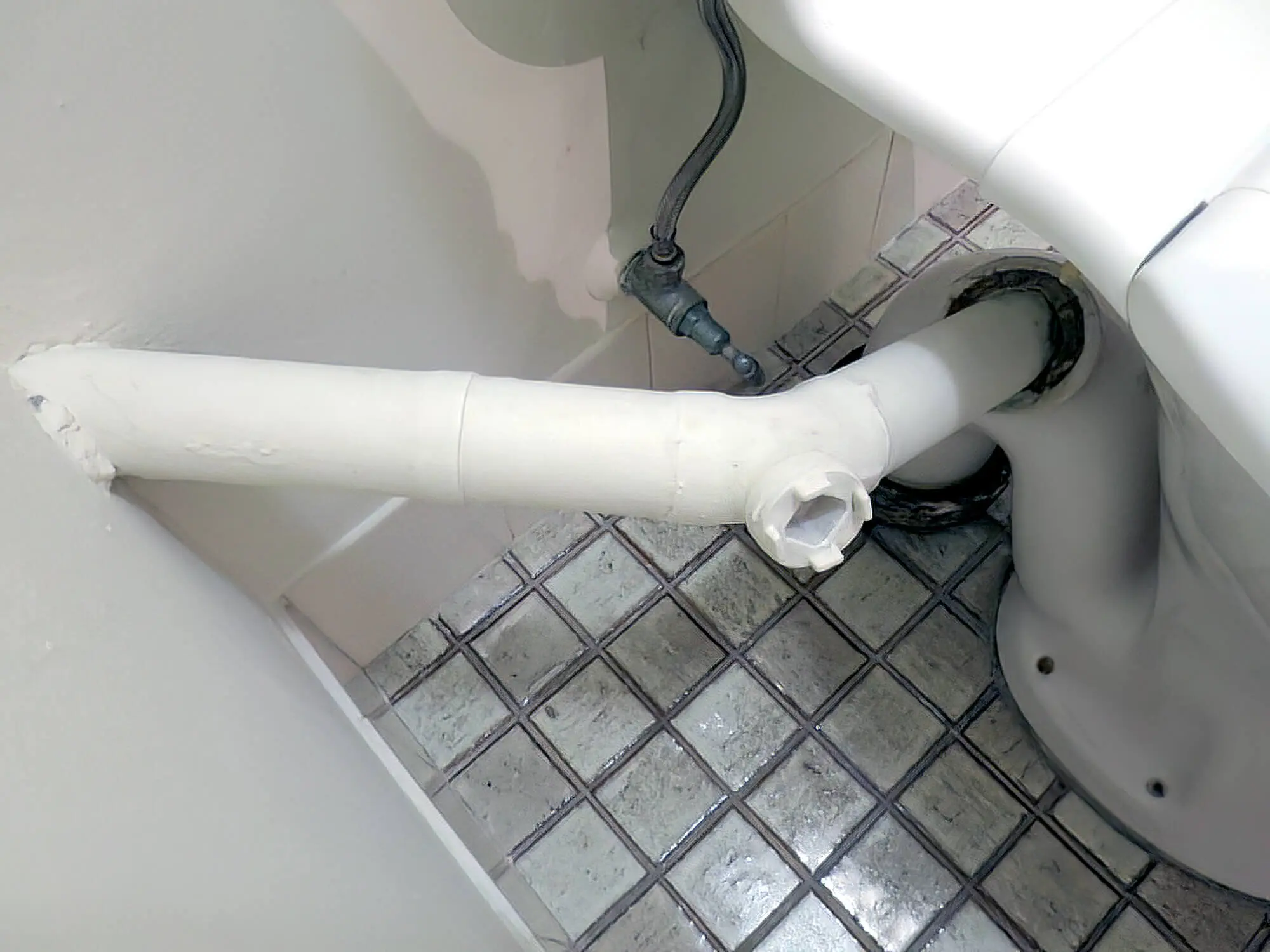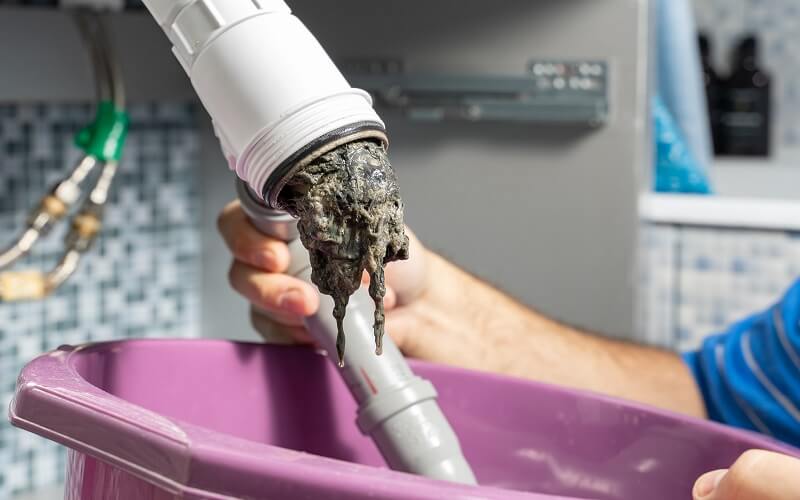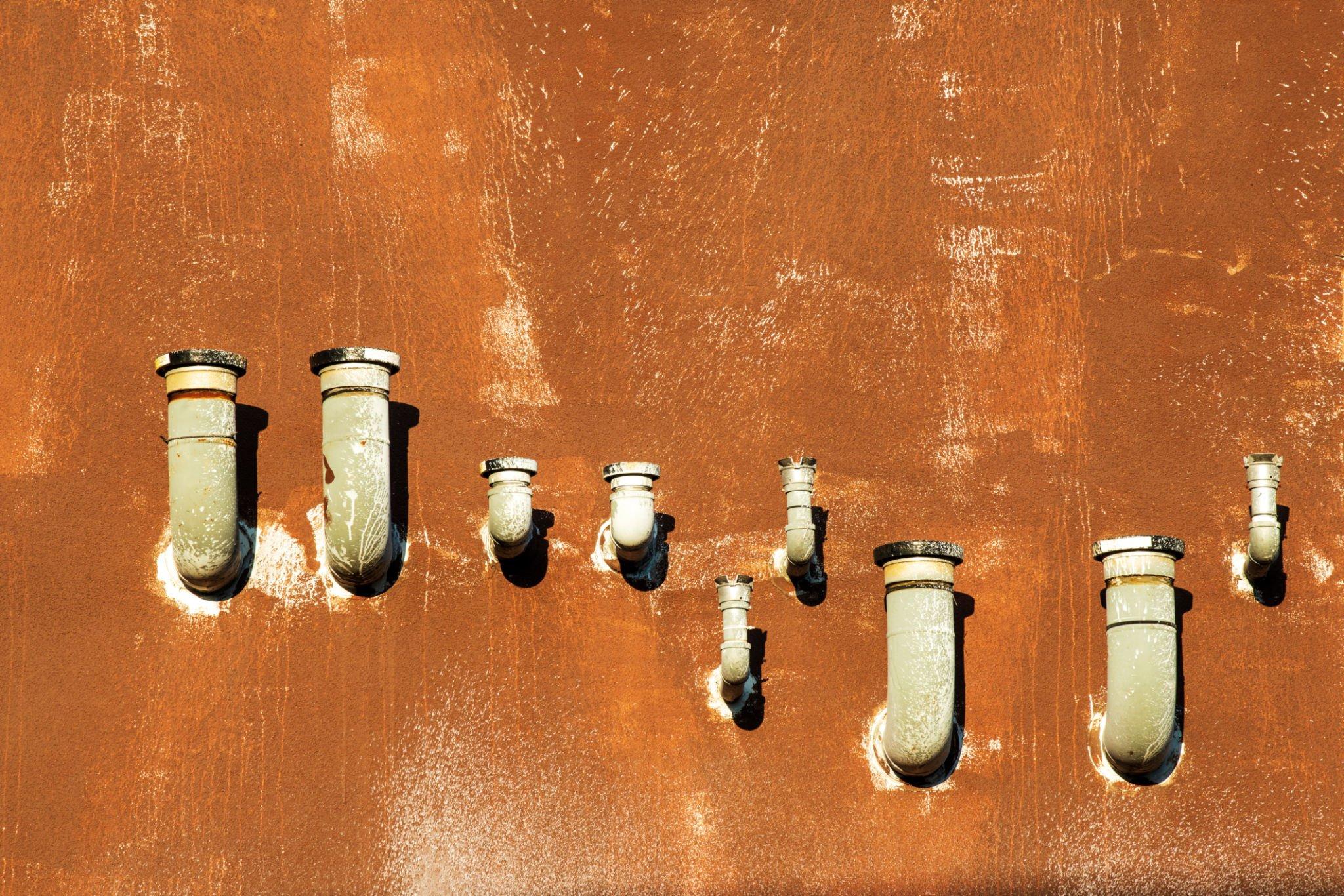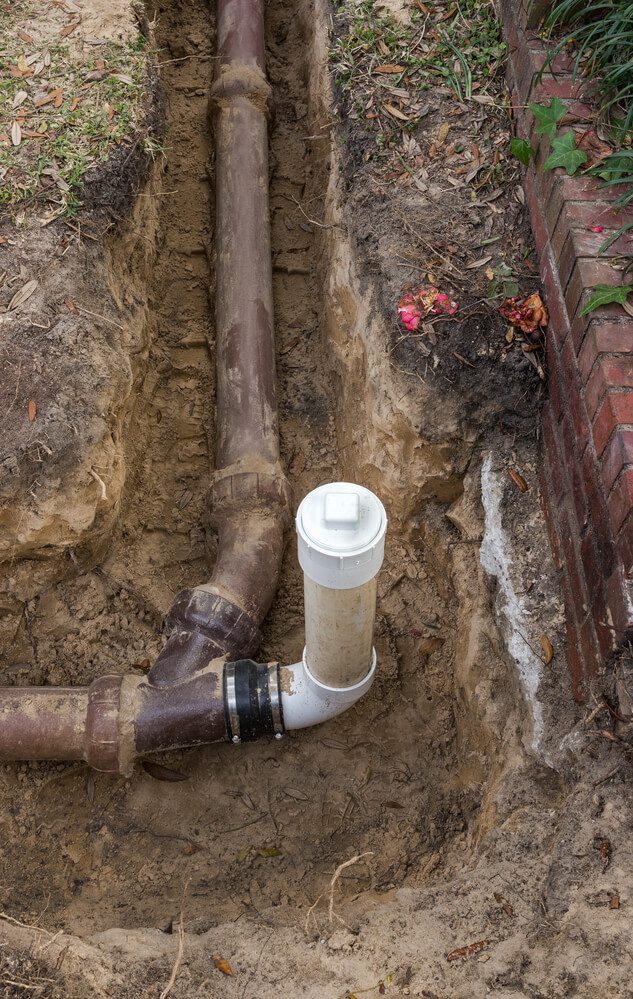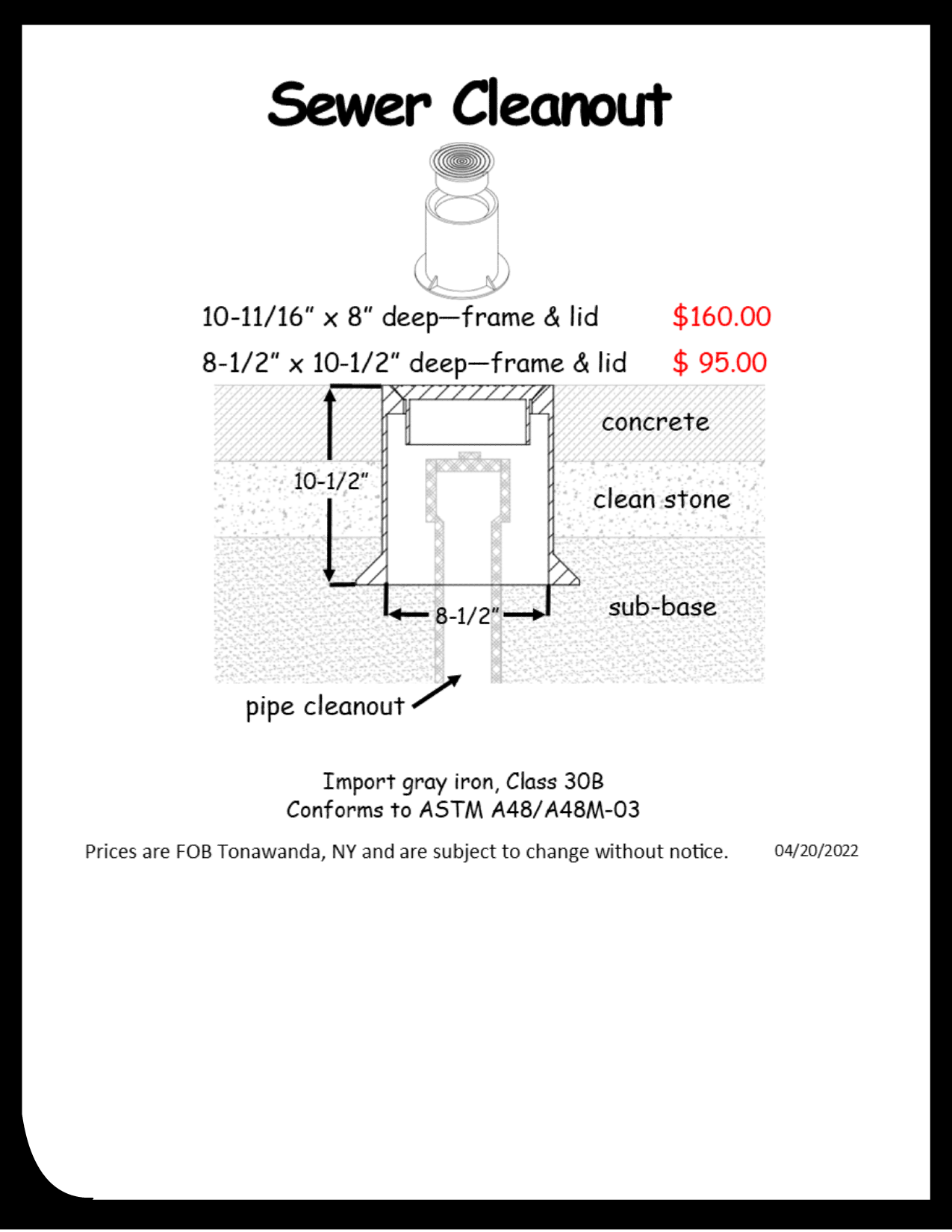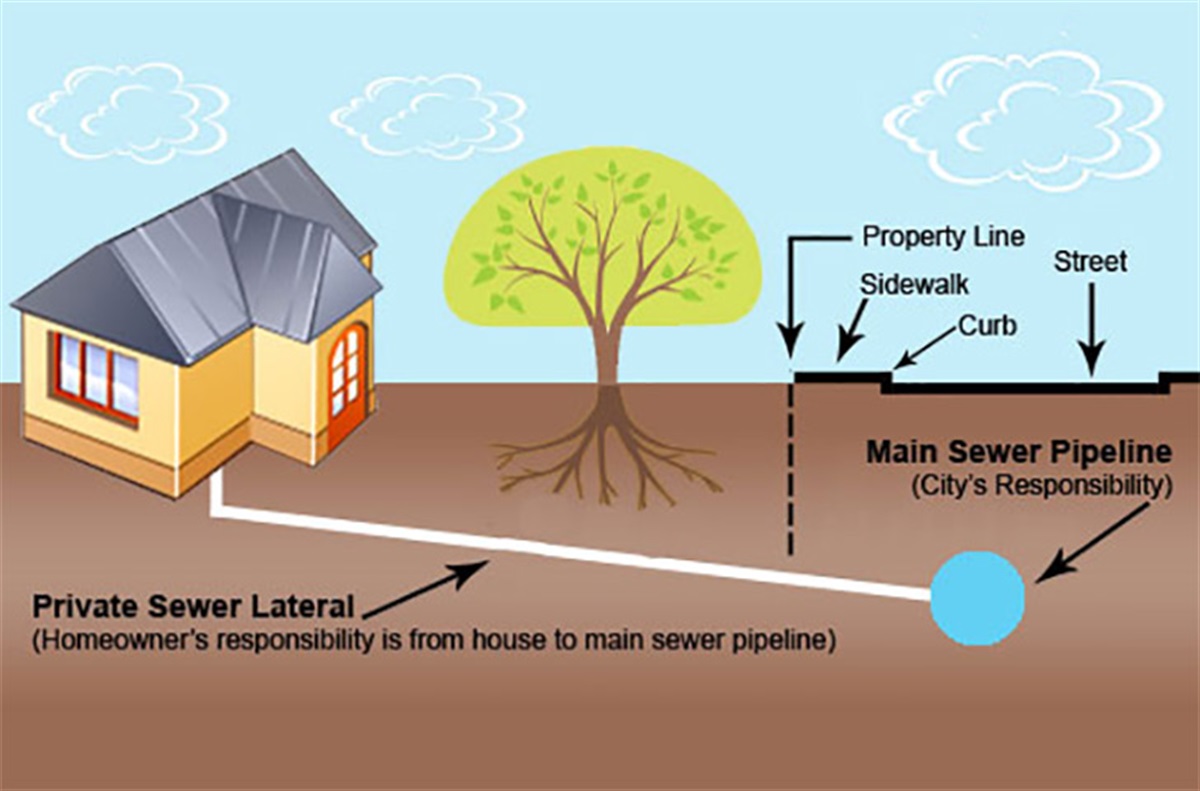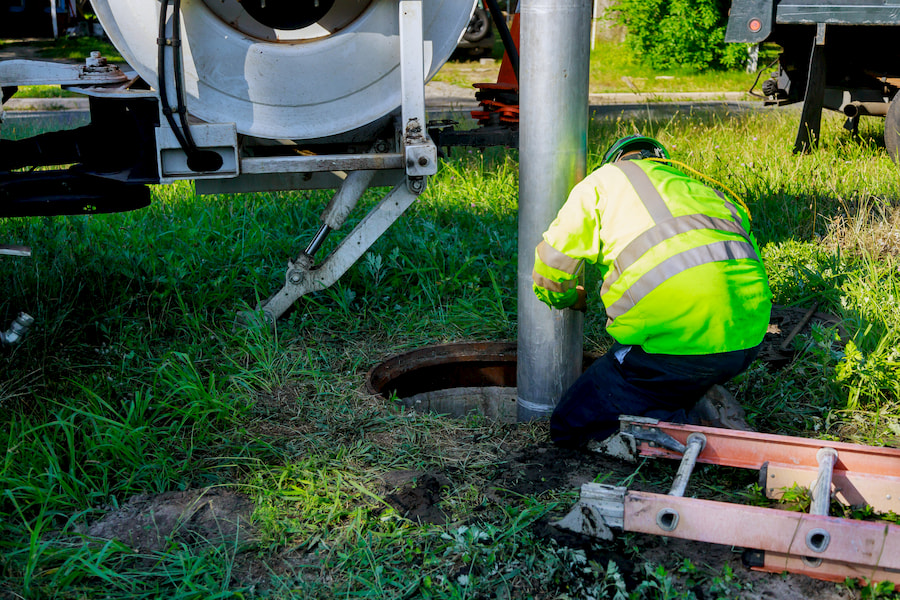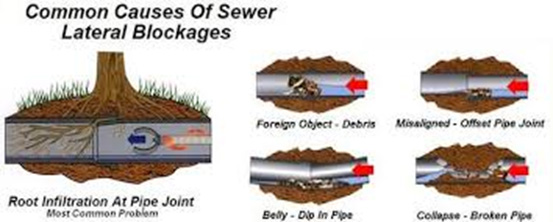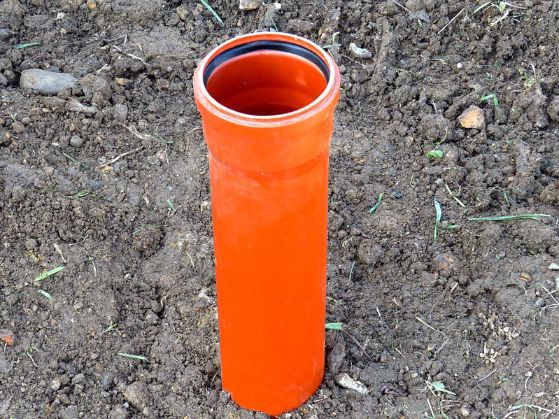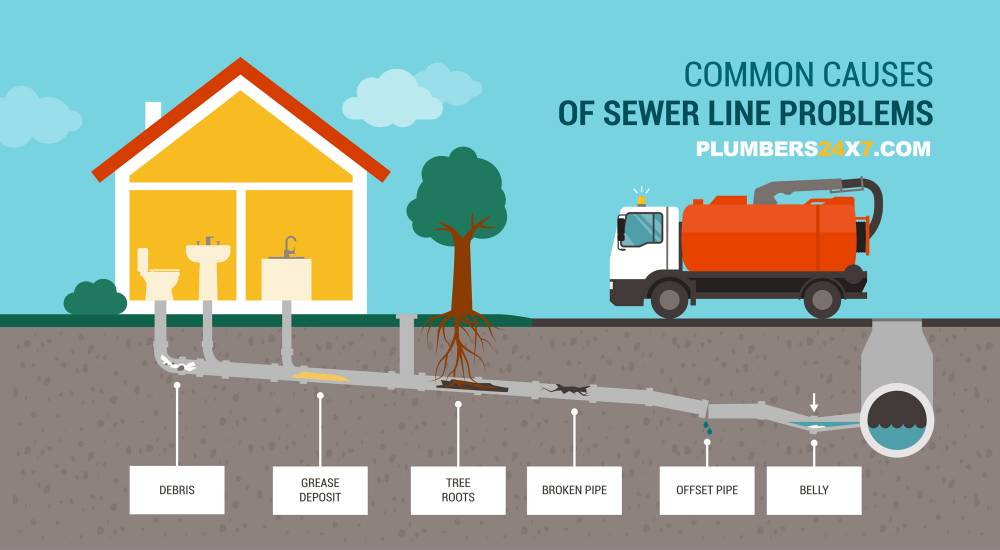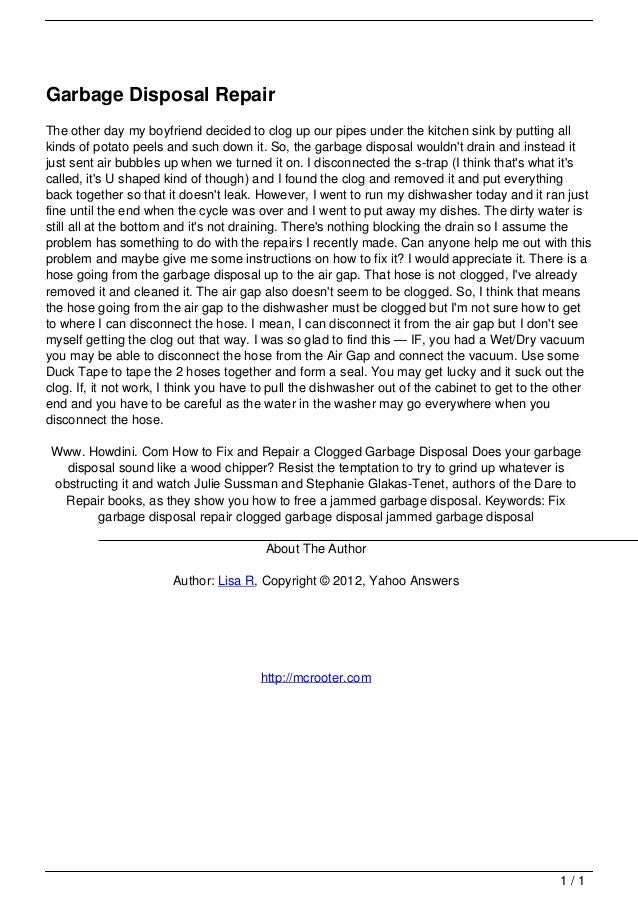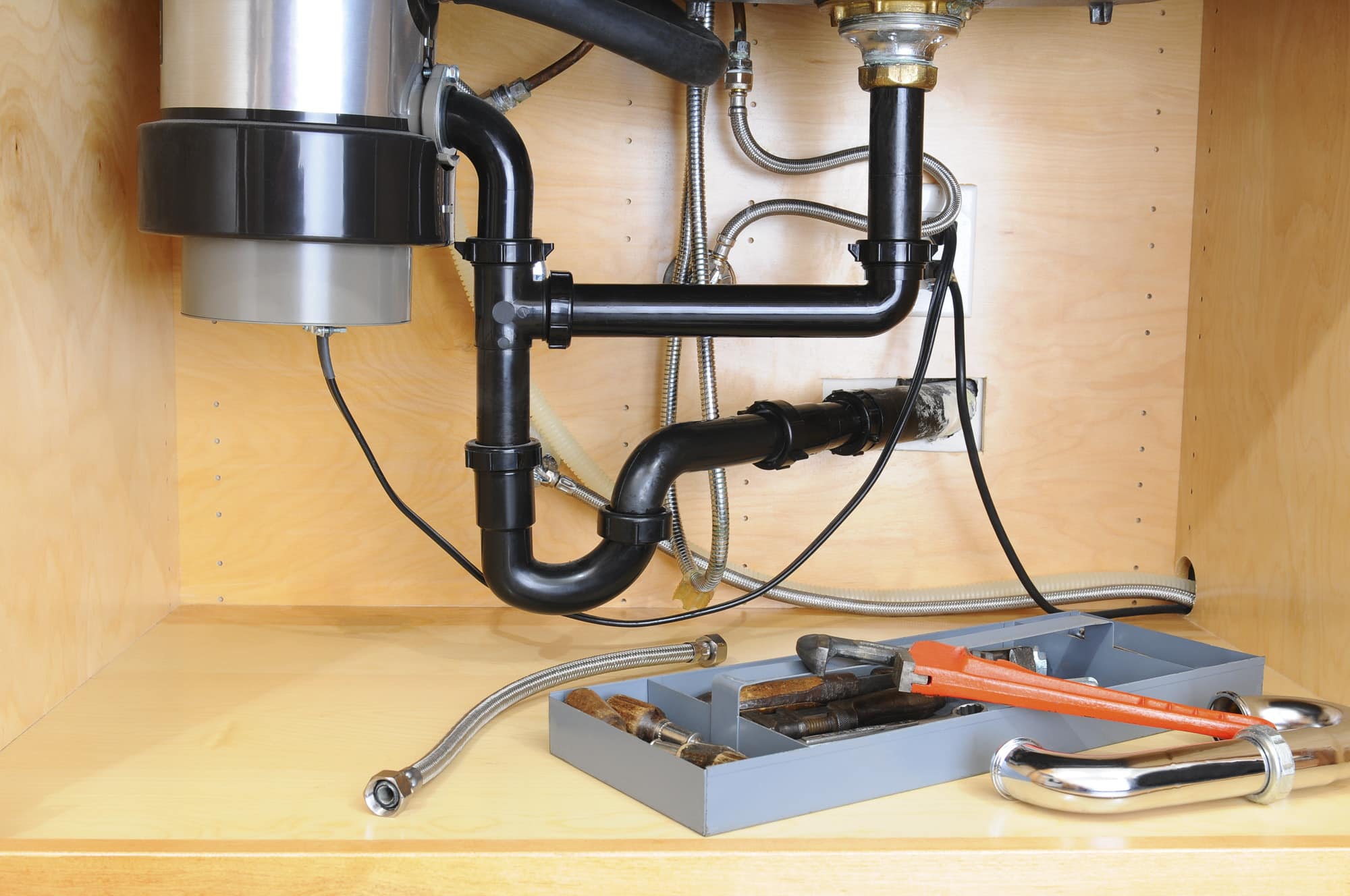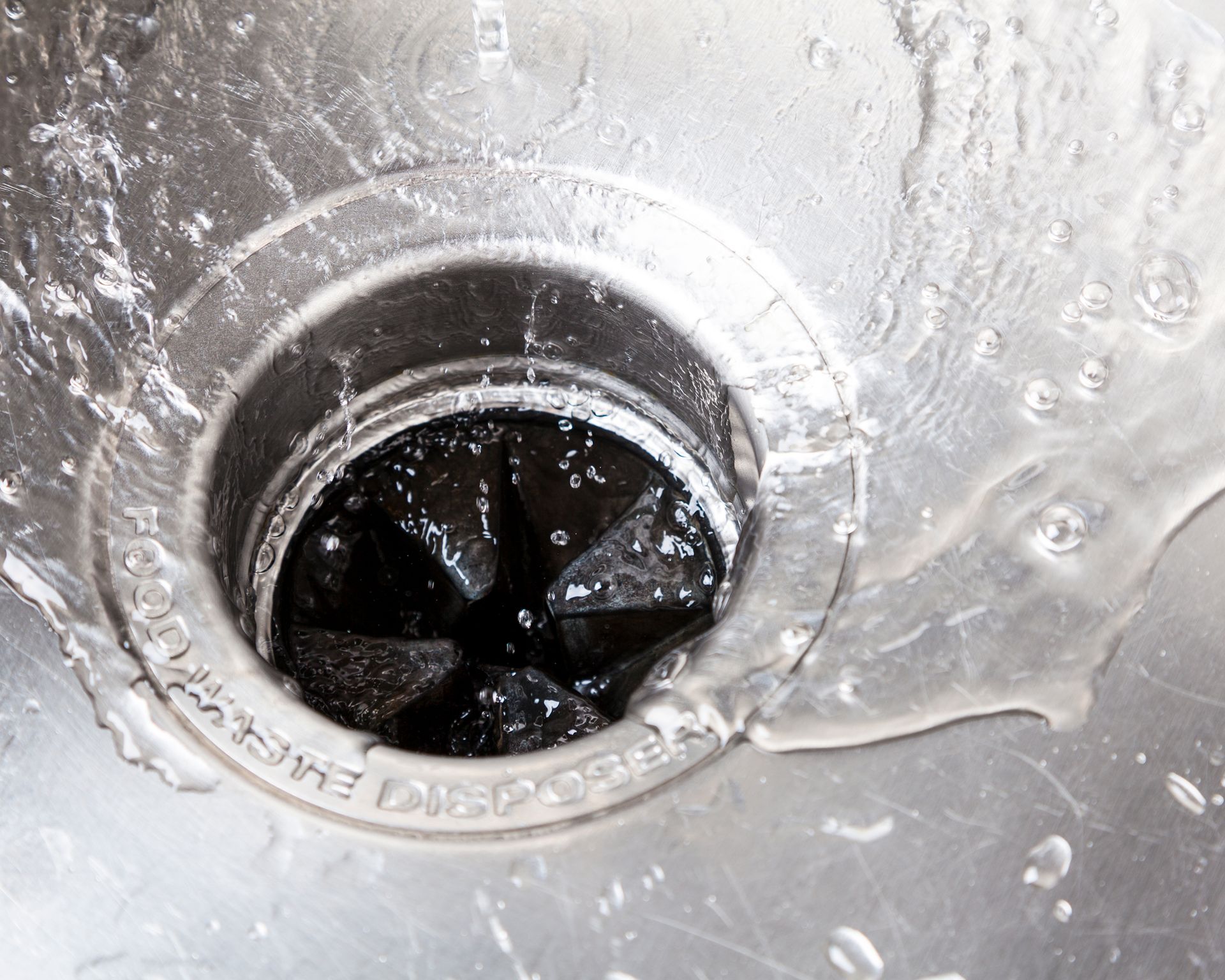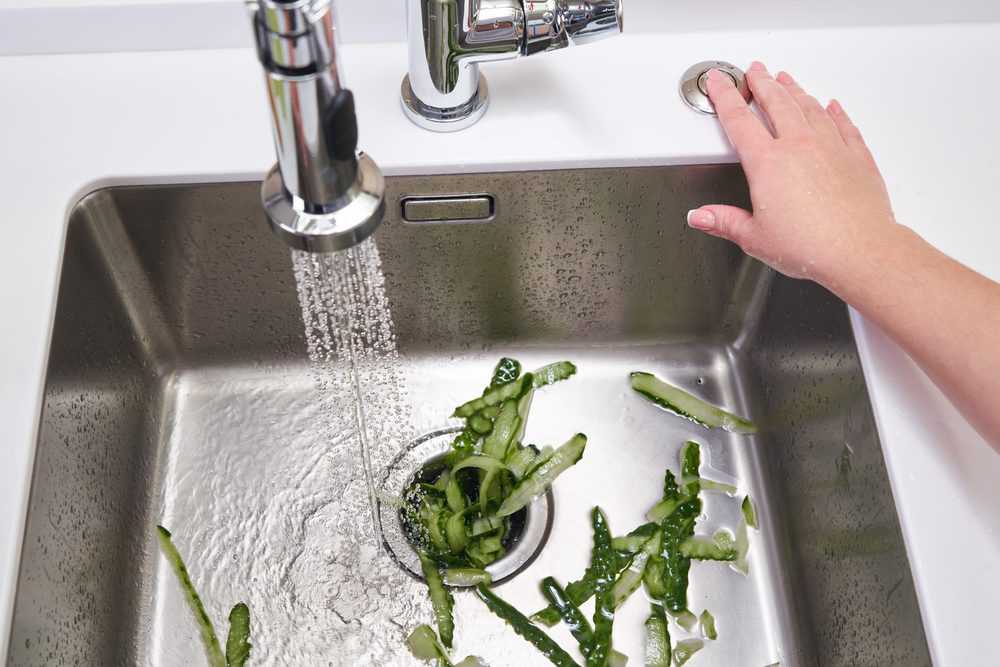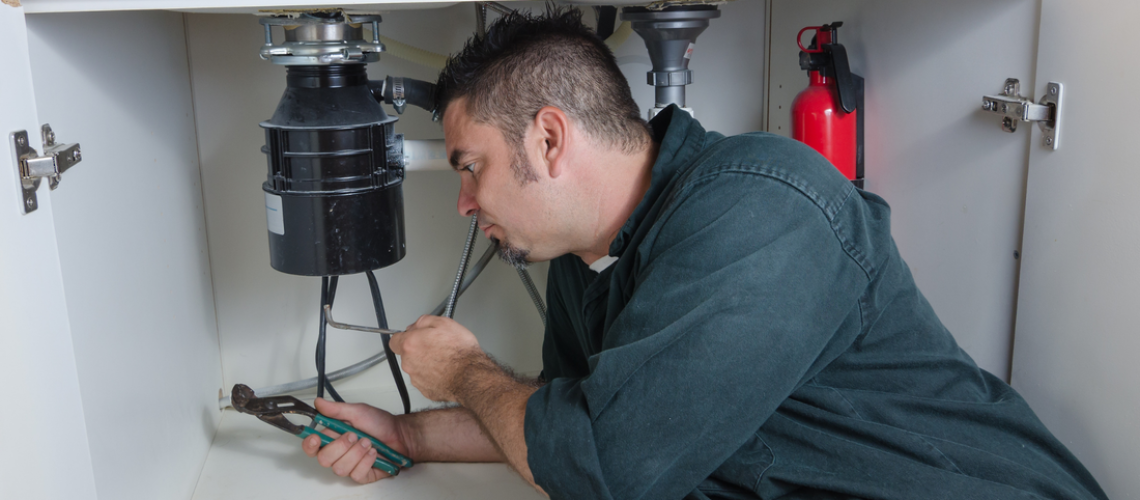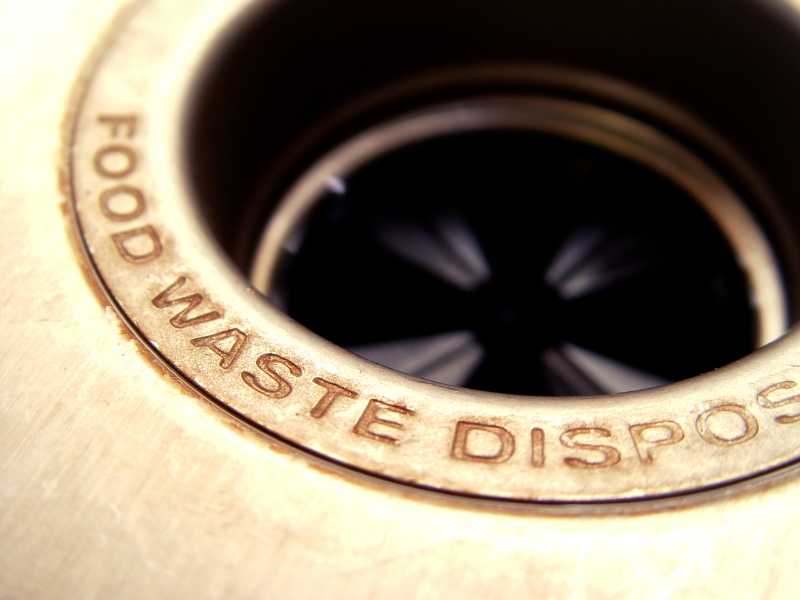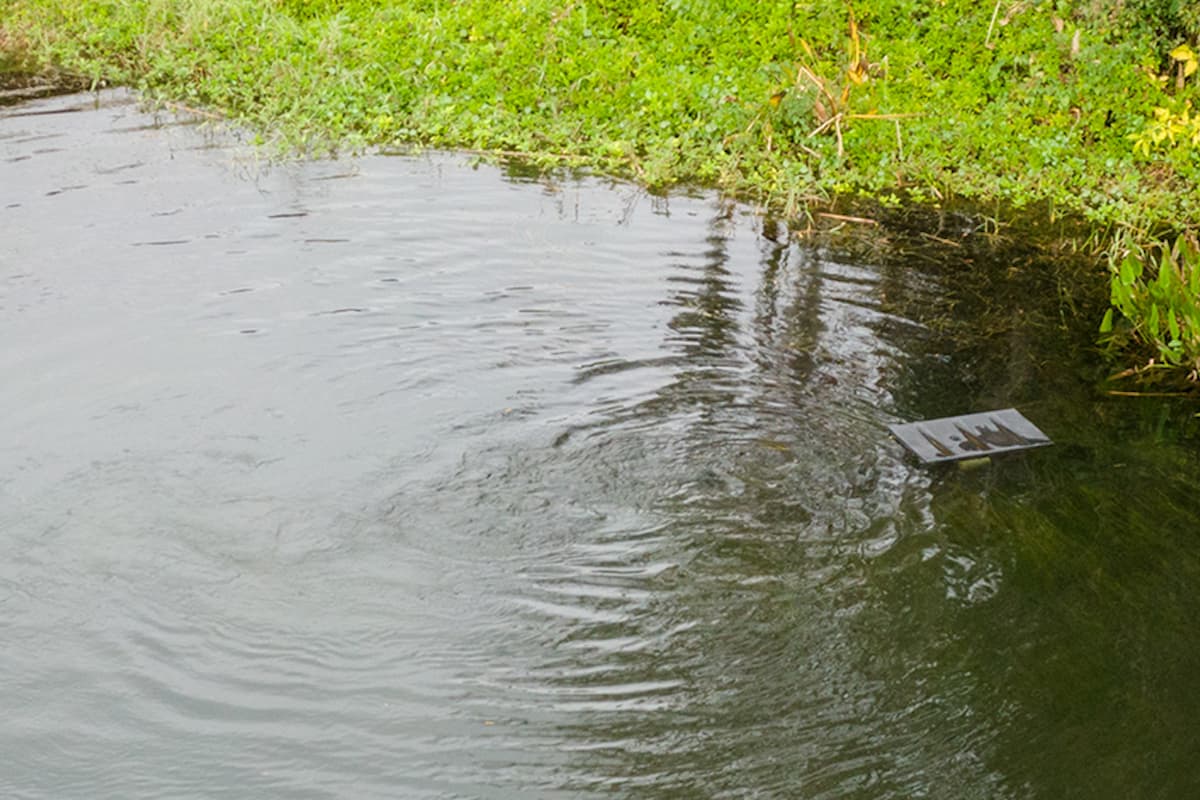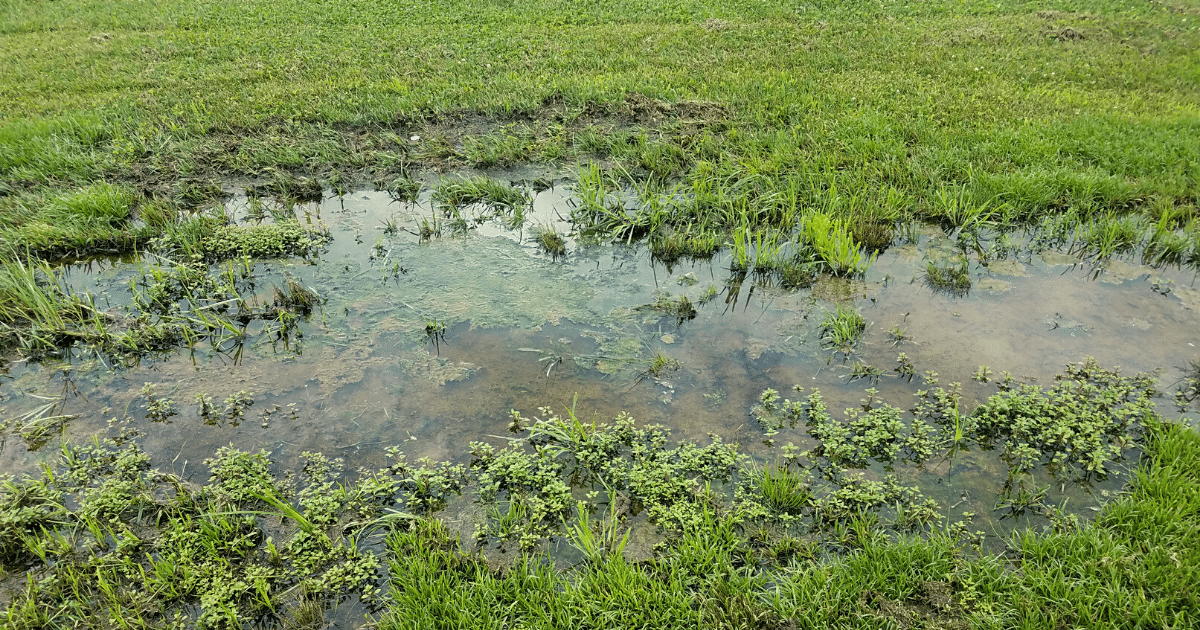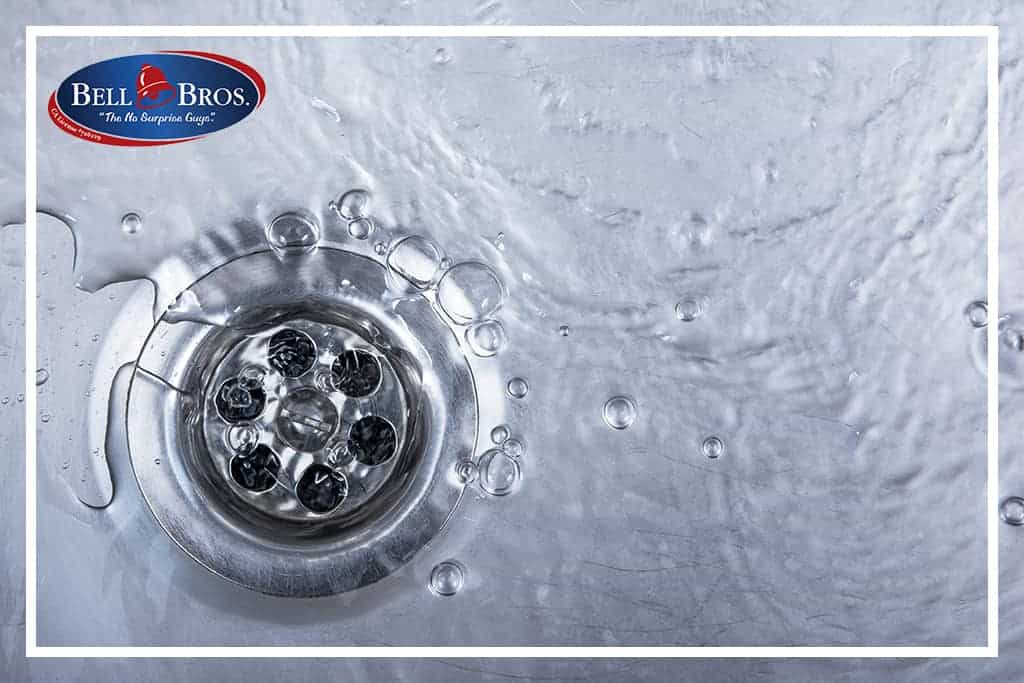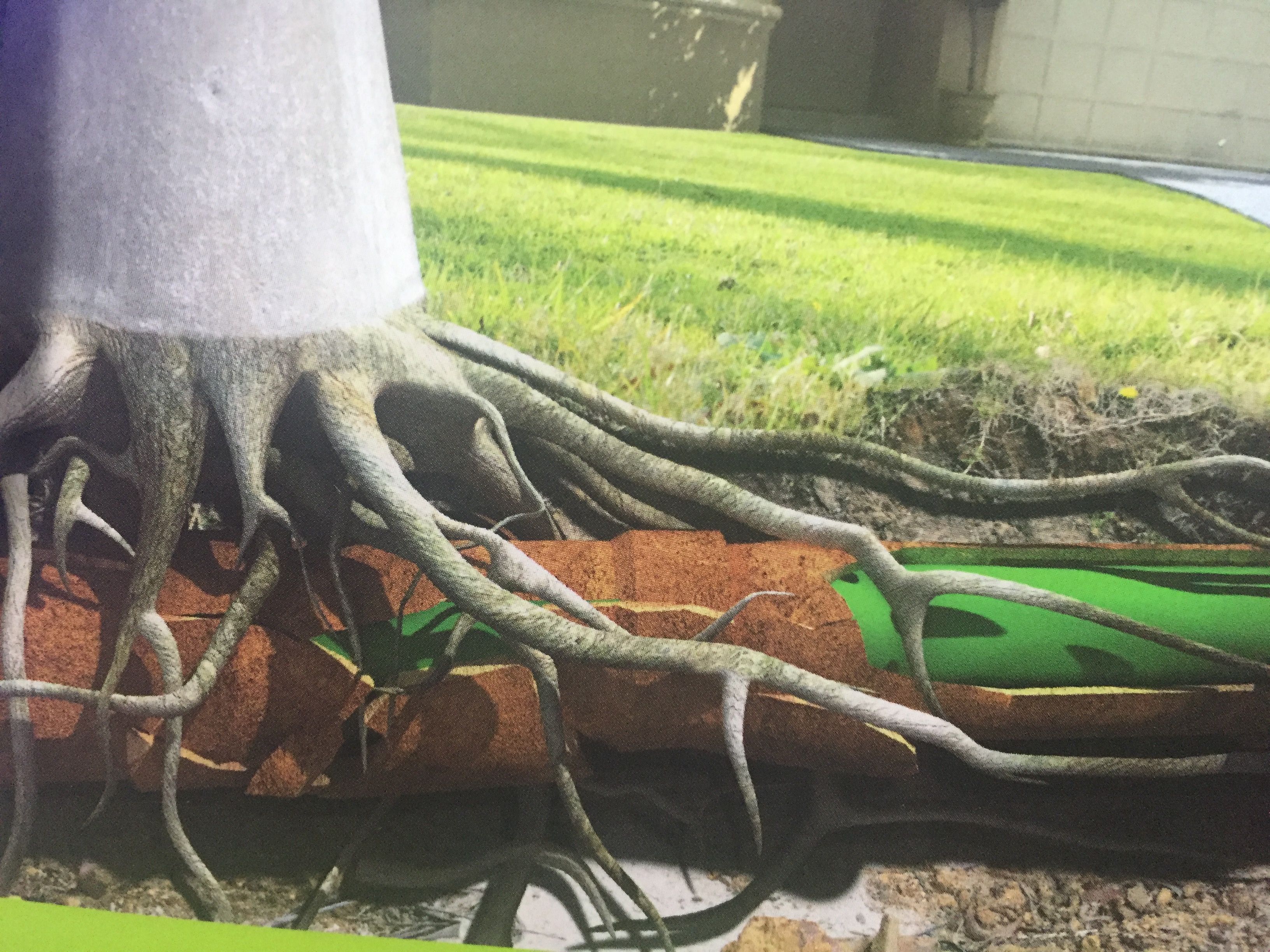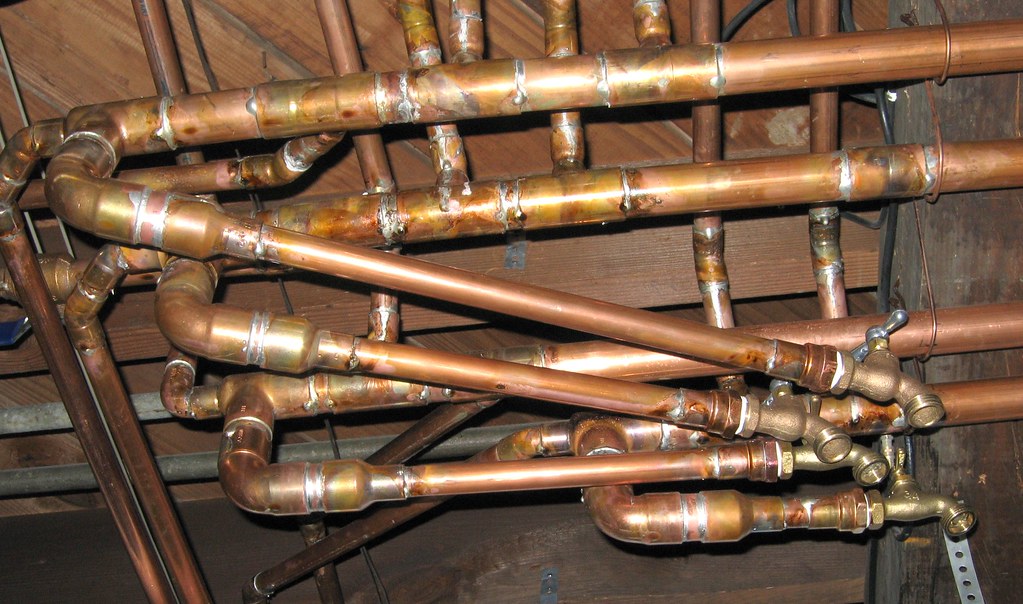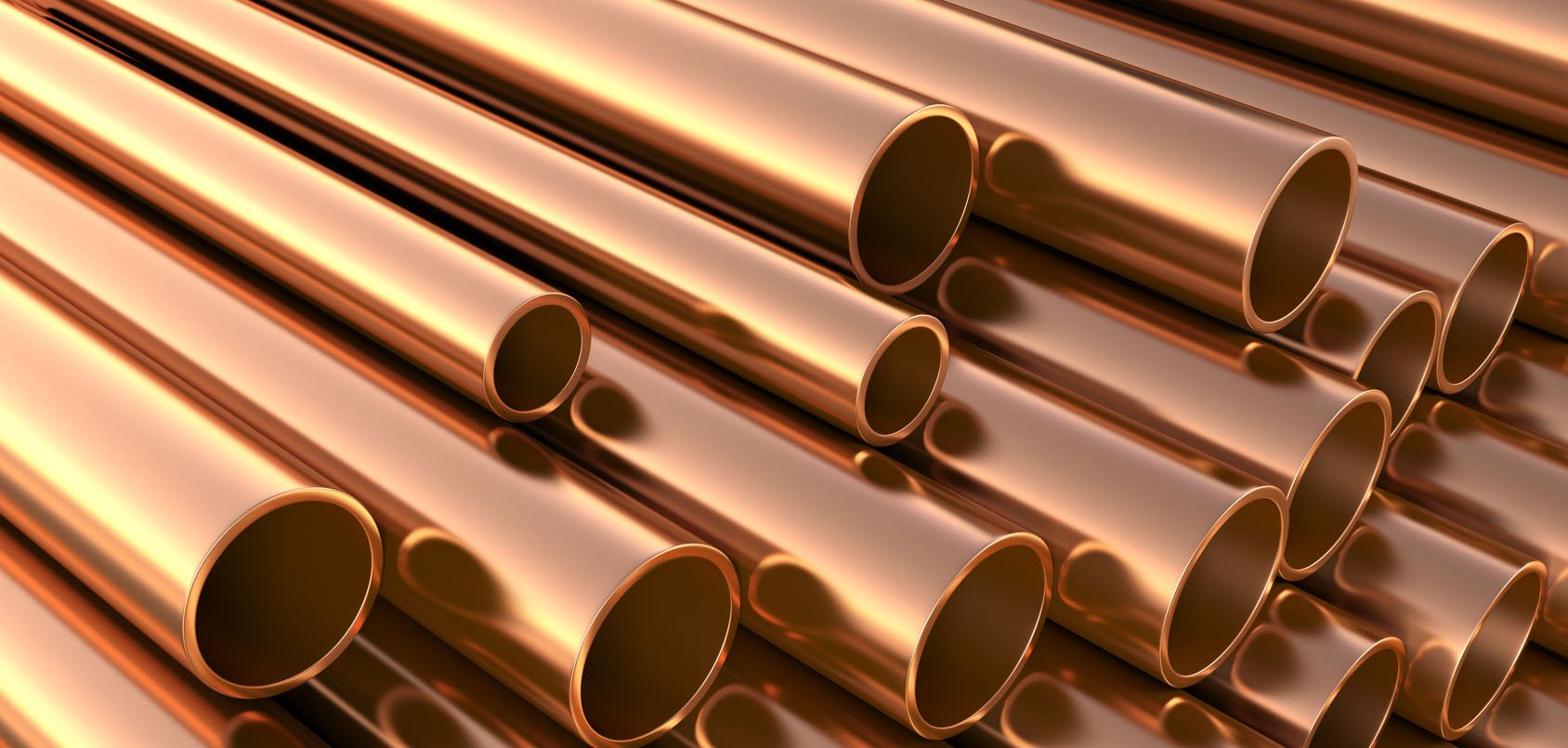One of the main reasons your kitchen sink may have a terrible smell is due to a clogged drain. Over time, food particles, grease, and other debris can get stuck in the pipes, causing a buildup that can emit a foul odor. If you notice that your sink is draining slowly or there is standing water, it's likely that your drain is clogged and in need of cleaning.1. Clogged Drain
Bacteria thrive in wet and dark environments, making your kitchen sink the perfect breeding ground for them. If you don't regularly clean your sink, bacteria can build up and release a strong odor. This can also happen if you leave dirty dishes or food scraps in the sink for too long. To combat bacteria buildup, make sure to clean your sink regularly with a disinfectant cleaner.2. Bacteria Buildup
It's no surprise that your kitchen sink can smell terrible if there is leftover food debris stuck in it. Even small particles can start to rot and produce a foul odor. This is especially true for foods with strong smells, such as onions or garlic. Make sure to thoroughly rinse your dishes before putting them in the sink and regularly clean out any food scraps that may have accumulated.3. Food Debris
Grease is another common culprit for a smelly kitchen sink. When you pour hot grease down the drain, it can solidify and stick to the pipes, causing a buildup that can clog the drain and emit an unpleasant odor. To prevent this, always dispose of grease in the trash instead of pouring it down the sink, and use a drain cover to catch any stray grease particles.4. Grease Accumulation
Mold loves damp and dark environments, so it's no surprise that it can grow in your kitchen sink. If you have a leaky faucet or pipe, it can create the perfect conditions for mold to thrive. Not only does mold produce a musty smell, but it can also be harmful to your health. If you suspect mold growth in your sink, it's important to address the issue and fix any leaks immediately.5. Mold Growth
The vent pipe is a crucial part of your plumbing system, as it allows air to flow in and out of your pipes and prevents a vacuum from forming. If the vent pipe becomes blocked, it can cause slow drainage and a foul smell to come from your sink. This is often caused by debris or even a bird's nest. A professional plumber can clear the blockage and restore proper airflow.6. Blocked Vent Pipe
If the smell coming from your kitchen sink is more like sewage, it could be a sign of a bigger problem with your sewer line. A damaged or clogged sewer line can cause backup and emit a strong odor. This is not only unpleasant but also a health hazard. If you suspect an issue with your sewer line, it's important to call a plumber right away.7. Sewer Line Issues
If you have a garbage disposal, it's important to use it properly to avoid any issues. Putting the wrong types of food or too much food at once down the disposal can cause it to clog and emit a foul smell. It's also important to regularly clean your garbage disposal to prevent buildup and odors. If you're unsure how to use or maintain your disposal, consult the manufacturer's instructions or call a professional.8. Garbage Disposal Problems
If your kitchen sink has standing water, it's a sign that there is a problem with the drainage system. Standing water can quickly become a breeding ground for bacteria and produce a strong odor. It could be caused by a clog, a damaged pipe, or even a problem with the sewer line. It's best to have a plumber inspect the issue to determine the cause and provide a solution.9. Standing Water
Over time, the pipes in your kitchen sink can become old and corroded, leading to leaks and a foul smell. If you have an older home or notice a musty odor coming from your sink, it's possible that your pipes may need to be replaced. It's important to address this issue as soon as possible to prevent further damage and potential health hazards.10. Old or Damaged Pipes
The Culprit Behind That Unpleasant Kitchen Sink Smell

Causes of Unpleasant Kitchen Sink Smell
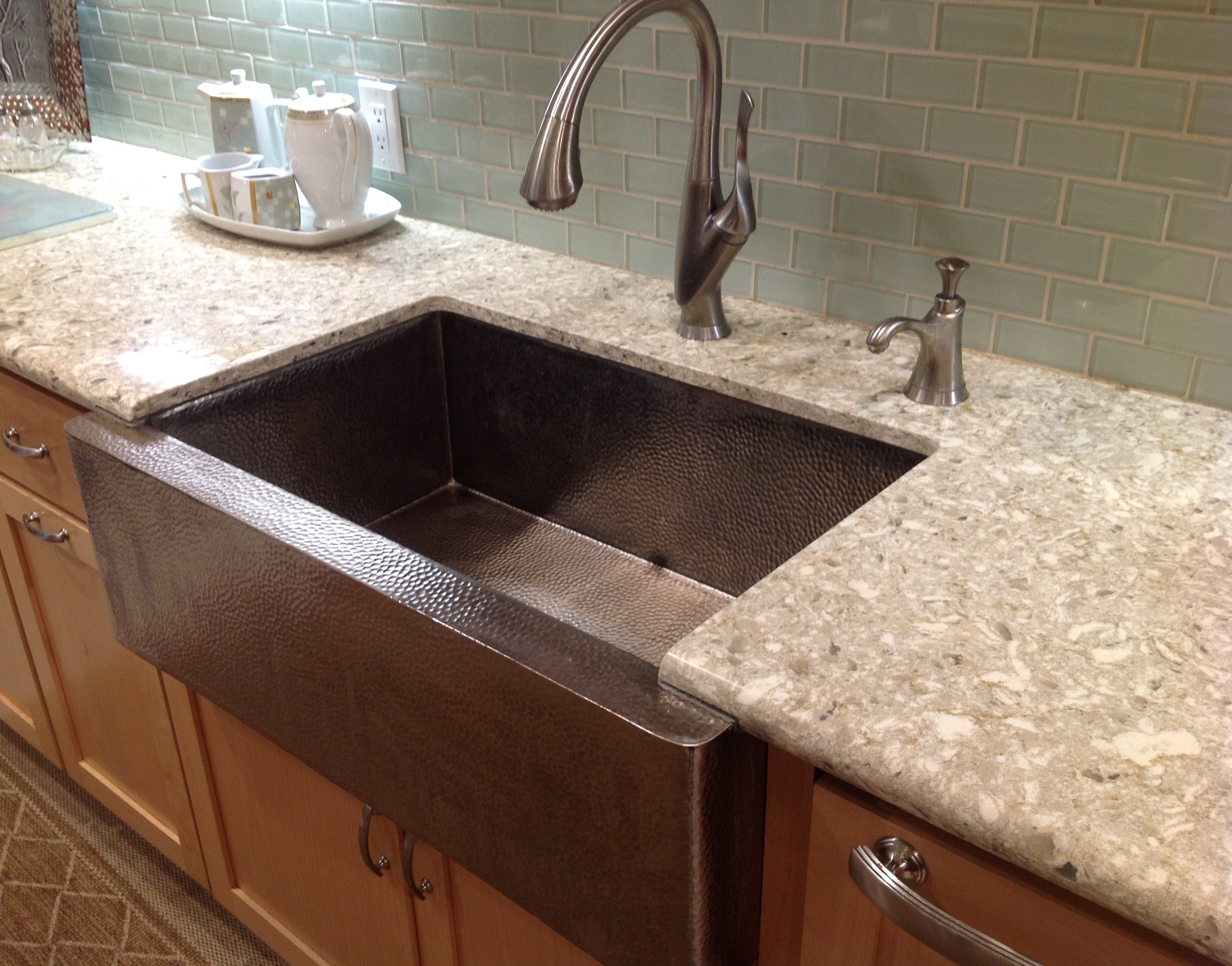 If you have ever walked into your kitchen and been hit with a foul odor, chances are it is coming from your kitchen sink. This unpleasant smell can be caused by a variety of factors, including a build-up of food debris, grease, and bacteria. The combination of these elements can create a potent and unpleasant smell that can quickly take over your kitchen. So, what exactly is causing that terrible smell in your kitchen sink?
Food Debris:
When we wash dishes or rinse food off plates in the sink, bits of food can get stuck in the drain or garbage disposal. Over time, these food particles can build up and start to decompose, releasing a foul odor.
Grease:
Pouring grease or oil down the drain may seem like an easy solution to getting rid of it, but it can actually cause more harm than good. Grease can solidify in your pipes and create a blockage, trapping food particles and causing a smelly build-up.
Bacteria:
Our kitchen sinks are a breeding ground for bacteria, especially in warm and damp environments. This bacteria can produce a foul smell, and if left unchecked, can lead to health issues and mold growth.
If you have ever walked into your kitchen and been hit with a foul odor, chances are it is coming from your kitchen sink. This unpleasant smell can be caused by a variety of factors, including a build-up of food debris, grease, and bacteria. The combination of these elements can create a potent and unpleasant smell that can quickly take over your kitchen. So, what exactly is causing that terrible smell in your kitchen sink?
Food Debris:
When we wash dishes or rinse food off plates in the sink, bits of food can get stuck in the drain or garbage disposal. Over time, these food particles can build up and start to decompose, releasing a foul odor.
Grease:
Pouring grease or oil down the drain may seem like an easy solution to getting rid of it, but it can actually cause more harm than good. Grease can solidify in your pipes and create a blockage, trapping food particles and causing a smelly build-up.
Bacteria:
Our kitchen sinks are a breeding ground for bacteria, especially in warm and damp environments. This bacteria can produce a foul smell, and if left unchecked, can lead to health issues and mold growth.
Solutions to Combat the Smell
 Now that we know the main culprits behind the unpleasant smell coming from our kitchen sinks, it's time to tackle the problem. Here are some solutions to help combat that terrible kitchen sink smell:
Regular Cleaning:
The most effective way to combat kitchen sink smell is to keep it clean. This means regularly scrubbing and disinfecting the sink, as well as removing any food debris or grease build-up.
Boiling Water:
Pouring boiling water down the drain can help break down and flush away any trapped food particles or grease. This is an easy and natural method to keep your sink smelling fresh.
Baking Soda and Vinegar:
This powerful combination is not just for baking or cleaning, it can also help eliminate odors from your kitchen sink. Simply pour half a cup of baking soda down the drain, followed by half a cup of vinegar. Let it sit for a few minutes before flushing it with hot water.
Now that we know the main culprits behind the unpleasant smell coming from our kitchen sinks, it's time to tackle the problem. Here are some solutions to help combat that terrible kitchen sink smell:
Regular Cleaning:
The most effective way to combat kitchen sink smell is to keep it clean. This means regularly scrubbing and disinfecting the sink, as well as removing any food debris or grease build-up.
Boiling Water:
Pouring boiling water down the drain can help break down and flush away any trapped food particles or grease. This is an easy and natural method to keep your sink smelling fresh.
Baking Soda and Vinegar:
This powerful combination is not just for baking or cleaning, it can also help eliminate odors from your kitchen sink. Simply pour half a cup of baking soda down the drain, followed by half a cup of vinegar. Let it sit for a few minutes before flushing it with hot water.
Prevention is Key
 While these solutions can help eliminate the unpleasant smell coming from your kitchen sink, prevention is always better than a cure. Here are some tips to prevent that terrible smell from coming back:
- Avoid pouring grease or oil down the drain. Instead, wipe it off with a paper towel and dispose of it in the trash.
- Use a drain catcher to catch food particles and prevent them from going down the drain.
- Run hot water down the drain after each use to help flush away any potential build-up.
- Regularly clean and disinfect your sink and garbage disposal.
With these tips and solutions, you can say goodbye to that unpleasant kitchen sink smell and enjoy a fresh and clean kitchen. Remember, proper maintenance and regular cleaning are key to keeping your kitchen sink smelling fresh.
While these solutions can help eliminate the unpleasant smell coming from your kitchen sink, prevention is always better than a cure. Here are some tips to prevent that terrible smell from coming back:
- Avoid pouring grease or oil down the drain. Instead, wipe it off with a paper towel and dispose of it in the trash.
- Use a drain catcher to catch food particles and prevent them from going down the drain.
- Run hot water down the drain after each use to help flush away any potential build-up.
- Regularly clean and disinfect your sink and garbage disposal.
With these tips and solutions, you can say goodbye to that unpleasant kitchen sink smell and enjoy a fresh and clean kitchen. Remember, proper maintenance and regular cleaning are key to keeping your kitchen sink smelling fresh.













